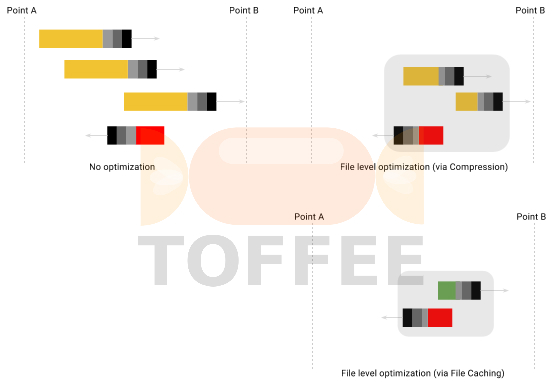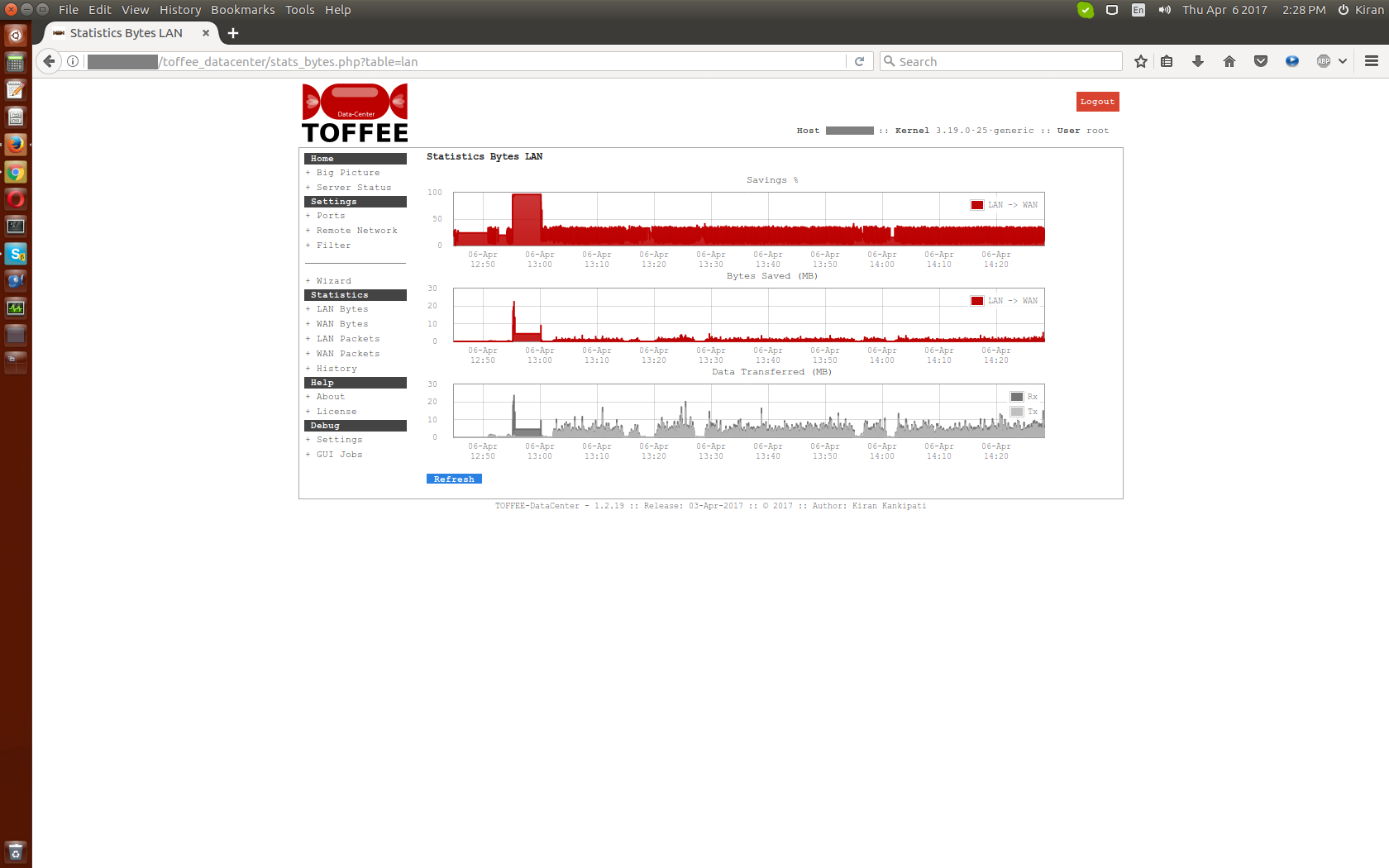RESEARCH 》 My Lab HDD and SSD logs for research
Working Drives:
| ID | Mfd on | Purchased on | Expired on | Form factor | Type | Speed MB/s | S.M.A.R.T. Power_On_Hours | Capacity | Specs, Details | Purchased for/in | Now installed in | Model Number | Serial Number | Updated on |
|---|---|---|---|---|---|---|---|---|---|---|---|---|---|---|
| 22 | Apr-2018 | 03-Oct-2018 | 3.5" | Desktop HDD | Not Available | 111 | 1TB | Western Digital Blue 7200 RPM | TITAN-NAS FreeNAS | TITAN-NAS FreeNAS - Disk7 | WDC WD10EZEX-22MFCA0 | WD-WCC6Y0EP1TN5 | 2019-01-06 23:32:11 | |
| 19 | Apr-2018 | 03-Oct-2018 | 3.5" | Desktop HDD | Not Available | 133 | 1TB | Western Digital Blue 7200 RPM | TITAN-NAS FreeNAS | TITAN-NAS FreeNAS - Disk4 | WDC WD10EZEX-22MFCA0 | WD-WCC6Y2THKC9T | 2019-01-06 23:32:11 | |
| 21 | Apr-2018 | 03-Oct-2018 | 3.5" | Desktop HDD | Not Available | 135 | 1TB | Western Digital Blue 7200 RPM | TITAN-NAS FreeNAS | TITAN-NAS FreeNAS - Disk6 | WDC WD10EZEX-22MFCA0 | WD-WCC6Y0EP137L | 2019-01-06 23:32:11 | |
| 18 | Apr-2018 | 03-Oct-2018 | 3.5" | Desktop HDD | Not Available | 135 | 1TB | Western Digital Blue 7200 RPM | TITAN-NAS FreeNAS | TITAN-NAS FreeNAS - Disk3 | WDC WD10EZEX-22MFCA0 | WD-WCC6Y4VDL867 | 2019-01-06 23:32:11 | |
| 20 | Apr-2018 | 03-Oct-2018 | 3.5" | Desktop HDD | Not Available | 135 | 1TB | Western Digital Blue 7200 RPM | TITAN-NAS FreeNAS | TITAN-NAS FreeNAS - Disk5 | WDC WD10EZEX-22MFCA0 | WD-WCC6Y1PJEEEK | 2019-01-06 23:32:11 | |
| 16 | 26-May-2018 | 26-Sep-2018 | 3.5" | Desktop HDD | 167.12 | 140 | 1TB | Western Digital Blue 7200 RPM | TITAN-NAS FreeNAS | TITAN-NAS FreeNAS - Disk1 | WDC WD10EZEX-22MFCA0 | WD-WCC6Y5XAJ57U | 2019-01-06 23:32:11 | |
| 17 | 26-May-2018 | 26-Sep-2018 | 3.5" | Desktop HDD | 181.22 | 140 | 1TB | Western Digital Blue 7200 RPM | TITAN-NAS FreeNAS | TITAN-NAS FreeNAS - Disk2 | WDC WD10EZEX-22MFCA0 | WD-WCC6Y7PP9UA3 | 2019-01-06 23:32:11 | |
| 15 | 2016 | 3-Oct-2017 | 2.5" | Laptop SSD | 538.64 | 400 | 128GB | Transcend 128GB | Warranty Replacement for SSD ID: 2 | Dell Laptop | TS128GSSD370 | D434540291 | 2018-10-30 22:18:38 | |
| 11 | 1-Apr-2016 | 4-Aug-2016 | 3.5" | NAS HDD | 160.41 | 845 | 4TB | Seagate 4TB NAS HDD Drive | NETGEAR RN104 ReadyNAS | Slot-4 NETGEAR RN104 ReadyNAS | ST4000VN000-1H4168 | W301AZC6 | 2018-10-13 11:16:06 | |
| 9 | 1-Oct-2014 | 11-Dec-2014 | 3.5" | Desktop HDD | 162.72 | 1,155 | 2TB | Toshiba 2TB | NETGEAR RN104 ReadyNAS | Slot-3 NETGEAR RN104 ReadyNAS | TOSHIBA DT01ACA200 TZ5 | X4BVXE5KS | 2018-10-13 11:16:05 | |
| 10 | 1-Feb-2015 | 8-May-2015 | 3.5" | Desktop HDD | 182.42 | 1,234 | 3TB | Seagate 3TB Barracuda | NETGEAR RN104 ReadyNAS | Slot-1 NETGEAR RN104 ReadyNAS | ST3000DM001-1CH166 | Z1F5Z7KF | 2018-10-13 11:16:05 | |
| 1 | 1-Oct-2014 | 8-Oct-2014 | mSATA | mSATA SSD | 146.70 | 2,434 | 32GB | KingFast 32GB | Celeron 1037U Mini-PC | NOT IN USE | F2M 32GB | NAG3257GG1084 | 2017-11-07 20:32:10 | |
| 5 | 27-Jul-2009 | 18-Aug-2009 | DEGRADING/ PREMATURE-FAILURE |
3.5" | Desktop HDD | 123.33 | 5,033 | 500GB | Seagate 500GB Barracuda 7200 RPM | Generic Desktop | TITAN-NAS FreeNAS | ST3500418AS | 9VM2RNTK | 2019-01-06 23:32:11 |
| 8 | 22-Jan-2014 | 12-May-2014 | 2.5" | Laptop HDD | 111.07 | 5,190 | 1TB | Toshiba 1TB | HP Envy 15-J111TX Laptop | TITAN-NAS FreeNAS | TOSHIBA MQ01ABD100 | 14M2S5H4S | 2019-01-06 23:32:11 | |
| 13 | 17-Feb-2017 | 14-Apr-2017 | 3.5" | Desktop HDD | 150.64 | 5,795 | 3TB | Western Digital Blue 5400 RPM | Archive/snapshot off-line backup of NAS | Intel Core-i7 5820K Desktop | WDC WD30EZRZ-00Z5HB0 | WD-WCC4N4HE8UKH | 2019-01-23 12:31:32 | |
| 3 | 19-Apr-2009 | 2009 | 2.5" | Laptop HDD | 55.50 | 6,142 | 250GB | WD Blue 250GB Scorpio | Acer Aspire 4810T Laptop | NOT IN USE | WDC WD2500BEVT-22ZCT0 | WD-WXE409JH2249 | 2019-01-24 08:48:00 | |
| 7 | 16-Apr-2013 | 7-Dec-2013 | DEGRADING/ PREMATURE-FAILURE |
2.5" | Laptop HDD | 113.99 | 10,570 | 1TB | Western Digital Blue Mobile | Dell 15R 5537 Laptop | TITAN-NAS FreeNAS | WDC WD10JPVX-75JC3T0 | WX81EB2TH773 | 2019-01-06 23:32:12 |
Expired Drives:
| ID | Mfd on | Purchased on | Expired on | Form factor | Type | Speed MB/s | S.M.A.R.T. Power_On_Hours | Capacity | Specs, Details | Purchased for/in | Last/Now installed in | Model Number | Serial Number | Updated on |
|---|---|---|---|---|---|---|---|---|---|---|---|---|---|---|
| 12 | 12-Jun-2016 | 10-Apr-2017 | 10-Apr-2017 | 3.5" | NAS HDD | Not Available | 0 | 4TB | Seagate 4TB NAS HDD Drive | NETGEAR RN104 ReadyNAS | Slot-2 NETGEAR RN104 ReadyNAS (factory defect and returned back to Amazon for refund) |
ST4000VN000 | WDH032KM | 2017-10-17 21:01:23 |
| 14 | 18-Oct-2008 | N.A | 09-Jul-2018 | 2.5" | Laptop HDD | 64.48 | 221 | 320GB | WD 320GB | Salvaged from old 2008 USB External Drive Western Digital WD My Passport Essential 320GB WD3200MEW-00 |
Offline NAS Archive | WDC WD3200BMVS-11F9S0 | WD-WXE108T34213 | 2018-07-09 18:48:38 |
| 2 | 21-Apr-2015 | 13-Jun-2017 | 2.5" | Laptop SSD | 513.35 | 788 | 128GB | Transcend 128GB | Core-i7 5820K Desktop | Core-i7 5820K Desktop - Video production (failed prematurely RMA - Got replacement SSD ID: 15) |
TS128GSSD370 | C07094-6745 | 2018-08-17 11:51:46 | |
| 6 | 27-Dec-2009 | 12-Dec-2010 | 12-Apr-2015 | 3.5" | Desktop HDD | Not Available | 1,463 | 1TB | Western Digital Caviar Green 1TB | Shark PC build | Offline Archive | WDC WD10EARS-00Y5B1 | WD-WCAV56336889 | 2017-10-17 20:08:03 |
| 4 | 18-Mar-2009 | 27-Mar-2017 | 2.5" | Laptop HDD | 69.00 | 13,763 | 320GB | Seagate 320GB Momentus 5400.6 | Ext USB enclosure | Dell Laptop | ST9320325AS | 5VE1CJAF | 2017-10-29 10:41:15 |
Total S.M.A.R.T. Power_On_Hours:
| Working Drives | Expired Drives | Combined |
|---|---|---|
| 17 Drives (39,727 Hrs, Avg: 2,337 Hrs) | 5 Drives (16,235 Hrs, Avg: 3,247 Hrs) | 22 Drives (55,962 Hrs, Avg: 2,544 Hrs) |
Here is a complete log of my hard-disk drives (HDD) and SSD drives which I maintain in Google drive. These I use for my home (or my family generic use) as well for my development and test devices as well a part of my home lab. I maintain a detailed log this way to monitor the failure rate of these storage devices. Since it is not just hard-disks which fail unexpectedly even SSDs are prone to fail. And in the case of mSATA and M.2 SSD drives since the board is exposed, it may fail sometimes due to mishandling (such as static) or due to any liquid spills. There are cases SSD may fail due to over-heating too due to various heat generating components at its vicinity.
The other reason I main this log is to also monitor the technological advancements in the storage technology. Its not about when Seagate or Western Digital (WD) or Samsung released their latest high-capacity harddrives or SSDs. Its all about when these new latest drives will become eventually affordable and get commonly used and as well to monitor when the older drive technologies (or capacities) will get obsolete. For example a 1TB 3.5'' internal desktop harddisk is obsolete. Where as one can still find 1TB internal 2.5'' laptop harddrive. But on the other hand a 1TB SSD drive is still quite expensive and the SSD market is not that mature yet to completely replace HDD.
As you can see, I maintain details of the drives which are still in use and are in working condition and the drives which are expired (or in other words failed). But it is important to make a note that the duration between the manufacture date (and purchase date) and expired date has nothing to do much in terms of accessing the drive's reliability. For example my WD Green 1TB WD10EARS 3.5'' drive I rarely used and it failed quite prematurely. It started producing weird disk-errors and S.M.A.R.T. errors and eventually failed to respond completely. I barely used this drive. Later I discovered this drive is quite prone to error and many users as well Backblaze already reported about it.
My first hard-disk I bought is a Seagate 10GB drive when I am studying at college. Ever since I got many hard-drives and these are missing in this log. I just got an idea to main this log quite recently and I started preparing this complete Google drive sheet and populated all my existing hard-drives and SSDs which I have it at my home (and my home lab).
In case if you are interested getting S.M.A.R.T. attributes of your HDD and or SSD drive, here is my video log of the same. You can capture these
attributes both via Linux Disks GUI tool as well smartctl command line tool as discussed below:
And in case if you are having issues or some inconsistency (such as file corruption, excess read leatency, etc) you can monitor and detect a failing
HDD or SSD in Linux as discussed in my video log below:
Suggested Topics:
Generic Home Lab Research
| 💎 TOFFEE-MOCHA new bootable ISO: | Download |
| 💎 TOFFEE Data-Center Big picture and Overview: | Download PDF |

Saturday' 13-Mar-2021
Featured Educational Video:
Research :: Optimization of network data (WAN Optimization) at various levels:

Learn Linux Systems Software and Kernel Programming:
![Linux, Kernel, Networking and Systems-Software online classes [CDN] Linux, Kernel, Networking and Systems-Software online classes [CDN]](http://sareesaremypassion.org/cdn/the-toffee-project/i/the_linux_channel_banner2.jpg)
Hardware Compression and Decompression Accelerator Cards:

TOFFEE-DataCenter on a Dell Server - Intel Xeon E5645 CPU:







